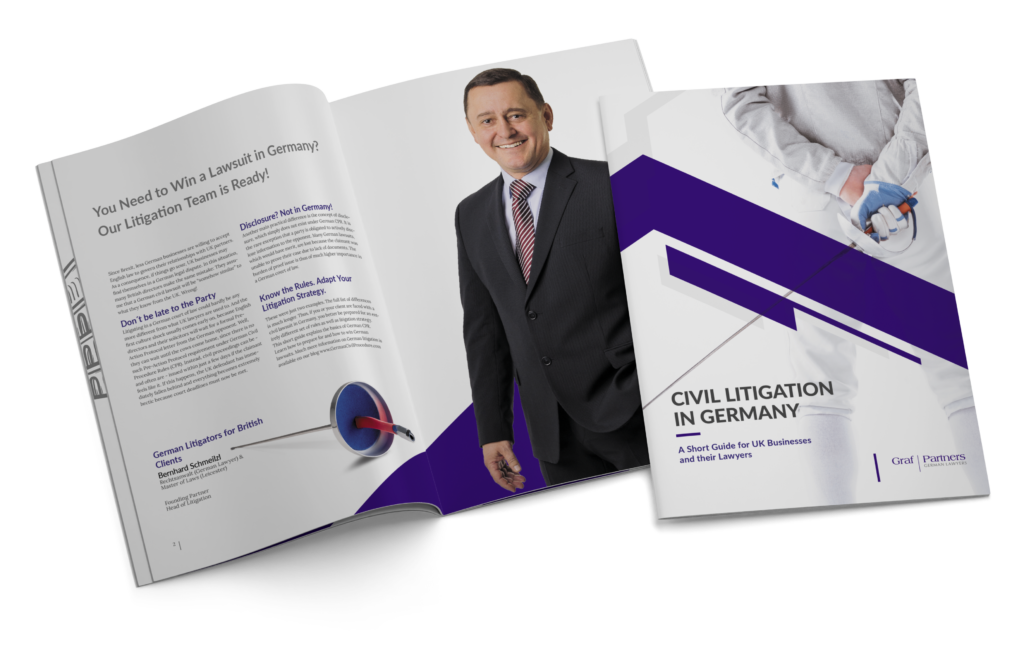
Recording phone or video calls without all-party consent is a criminal offence
Journalists from common law jurisdictions are often surprised or even shocked when they learn that any kind of audio recording – whether covert or open – is illegal under German law, unless the speaker who is being recorded addresses “the public”, for example makes a political speech.
Such an audio recording without all party consent is even a criminal offence in Germany, see section 201 German Criminal Code which states:
Section 201 Violation of privacy of spoken word
(1) Whoever, without being authorised to do so,
1. makes an audio recording of the privately spoken words of another or
2. uses or makes a recording thus produced available to a third party
incurs a penalty of imprisonment for a term not exceeding three years or a fine.
(2) Whoever, without being authorised to do so,
1. uses a listening device to intercept the privately spoken words of another which they are not intended to hear or
2. publicly communicates, verbatim or the essential content of, the privately spoken words of another which were recorded as per subsection (1) no. 1 or intercepted as per subsection (2) no. 1
incurs the same penalty. The act referred to in sentence 1 no. 2 only entails criminal liability if the public communication is suited to interfering with the legitimate interests of another. It is not unlawful if the public communication was made for the purpose of safeguarding overriding public interests.
(3) Whoever, in the capacity as a public official or a person entrusted with special public service functions, violates the privacy of the spoken word (subsections (1) and (2)) incurs a penalty of imprisonment for a term not exceeding five years or a fine.
(4) The attempt is punishable.
(5) The audio recording and listening devices which the offender or participant used may be confiscated. Section 74a applies.
Thus, in Germany, using a hidden microphone or taping a telephone conversation or a video call without getting the other party’s permission first is a very bad idea, regardless of whether it is a phione call with a business partner or even your spouse. Not only can that person enter a civil injunction action (Unterlassungsklage) against you, they can also press criminal charges. And if the reason for making the secret audio recording was to obtain proof about something which you plan to use in court, that strategy will not work out in the majority of cases, because German courts, as a general rule, do not a permit such covert recordings as evidence, both in criminal and civil proceedings. There are only very limited exceptions to this ban on evidence (Beweisverwertungsverbot).
More on the issue of covert audio and video recordings in German from a journalist’s perspective:
Legal Limits of Investigative Journalism in Germany
GrafLegal – German litigators for UK/US clients since 2003
German civil litigation expert Bernhard Schmeilzl provides legal advice for British and US-American clients for more than 20 years, with a clear focus on high stakes civil litigation cases.
In the brochure “German Civil Litigation”, head litigator Bernhard Schmeilzl explains important facts and legal principles. Always, with a focus on practical relevance for UK and US clients who are claimants or defendants in a civil lawsuit in Germany.
We are well aware of the typical misconceptions held by UK and US business owners and their lawyers. These misconceptions result in poor litigation strategy and – eventually – lost cases in German courts of law.
We ensure that you avoid the trap of preparing your lawsuit as you would in the UK or USA when – in fact – you will face a German judge who has entirely different expectations.
The brochure is a must read for anyone involved in German civil litigation
Order your free copy by sending an email to: info@graflegal.com
Also visit our website on German Civil Litigation
https://www.germancivilprocedure.com/
Header picture credits: Jonathan Farber on Unsplash

